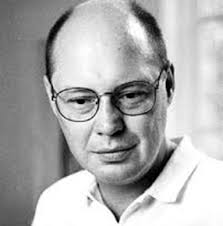
I like to meet new poets via their poems (the antisocial distancing aspect is an extra benefit). This weekend, via The Penguin Anthology of 20th Century American Poetry edited by Rita Dove, I met a poet named Andrew Hudgins via his poem “We Were Simply Talking.”
This poem did something I did in a poem of my own a few years back, only it did it better. That’s OK. I can learn from that. Still, the fact that we have the same sentiments about the same topics speaks loudly, meaning there will have to be further exploration of Hudgins’ work. Let’s take a look at the poem, shall we?
We Were Simply Talking
Andrew Hudgins
We were simply talking, probably work, or relatives
or even Christmas presents, when the car slid
and I corrected, fishtailed and I corrected, then we were gone,
sliding sideways, sliding backward on black ice
and staring into the grill of a diesel tractor, also sliding,
and in that instant I was ready to die.
I saw my wife and was overjoyed that I had married her,
though our marriage was already falling apart,
and I loved the car, a brown Toyota, loved
being warm in the car while it was white, cold, bitter
out in the world we’d lost control of. I loved
every molecule of breath I wasn’t taking,
and for the moment I forgave myself every sin
and failure of my life, including this
ridiculous and undignified early death.
The car snapped backward into a frozen ditch.
I sat speechless, shaking, my wife speechless also,
and a man pulled up, a salesman: You folks okay?
Suddenly the car radio roared, and by the car
a dog barked wildly and, yes, we were fine.
Fine. We were fine. But what was “fine,” I wondered,
and why do we always, always have to speak?
I love in L3 how he literally (in the poem) corrects himself while describing a driving feat that involves correcting. Repetition figures prominently in the end, too, where the “fine” in “we were fine” merits three mentions, as if to be sure, which aptly mimics the situation that just went down.
The details in the middle are interesting, too: about the sliding (heh) marriage, about the brown Toyota, even about the “molecule of breath I wasn’t taking.”
But what gets me is the nugget of wisdom, seemingly incongruous, at the end. What makes it fit here is an oddity — the fact that husband and wife are still speechless with fear.
And finally the repetition of “always” in the final line, how it emphasizes the point that talk ruins so many things in life. In this poem, some time earlier to the car mishap, it was probably the marriage that suffered for it. In mine it was the fact that we sometimes romanticize strangers only because we haven’t heard them talk yet. Once that goes down, forget it.
As Hudgins can tell you, in 99.2% of the cases, it ruins everything.